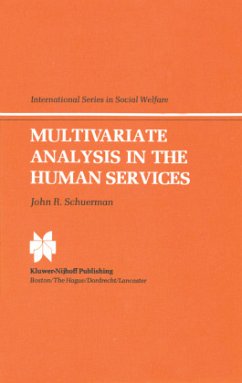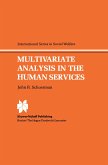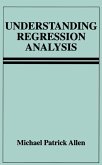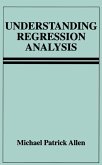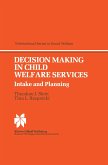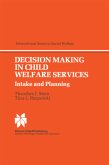Research and evaluation in the human services usually involves a relatively large number of variables. We are interested in phenomena that have many aspects and many causes. The techniques needed to deal with many variables go beyond those of introductory statistics. Elementary procedures in statistics are limited in usefulness to situations in which we have two or three variables. When we have more than that, application of elementary techniques will often yield mis leading results. Why are elementary techniques inadequate when applied to many variables? Why, for example, should we not simply interpret a series of correlations of independent and dependent variables? The answer lies in the fact that these correlations are not independent pieces of information. The correlations of vari ables x and z with yare affected by the association of x with z. Hence, talk about the "effect" of x on y will be somewhat ambiguous, since we will be in cluding in that effect some of the effects of z. We would like to be able to sort out these effects. This is the problem of "estimation," that is, estimating the relationships or effects between variables, taking into account their relationships with other variables.
Hinweis: Dieser Artikel kann nur an eine deutsche Lieferadresse ausgeliefert werden.
Hinweis: Dieser Artikel kann nur an eine deutsche Lieferadresse ausgeliefert werden.

